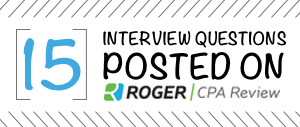Here’s the accounting lingo you need to know, have a listen for more!
Busy Season: Typically, the three-month period following the client’s year-end, where a Big 4 staff member can expect to work 12+ hour days. That being said, some offices are known for their perpetual busy seasons, wherein the staff members work long hours throughout the year.
FP&A: Stands for Financial Planning and Analysis, which is typically the department that does the budgeting and forecasting for the company.
Non-Traditional: Someone who went back to school after he or she had another career or never worked and started university at a later age than the traditional 17-19 year old.
Campus/College Hires: Staff personnel hired straight out of college, usually in their early 20s. They can be identified by their brand new cars that scream junior executive and their uncanny ability to talk-up their positions and roles working at the Big 4.
Charge Codes: Codes used in the time reporting system for billing purposes to charge time for different projects.
Hit the Code: To charge expenses directly to the client code.
Circle Back: Let’s talk about this again later. Also used when a superior does not want to discuss the issue at hand due to the lack of his/her understanding of the issue.
Clearing Comments: The process of resolving issues raised by partners and managers while reviewing your work. This process can cause quite the headache if you have a nitpicky reviewer and a grumpy client because you will be caught in the middle of the cross-fire.
Crossfoot: Verifying the row totals of the PBCs.
CYA: Cover Your Ass. The term is used for documents used in the course of the audit but not included in the workpapers. These documents are typically preserved due to the litigious nature of accounting services.
P&L: Profit and Loss Statement.
Eating Hours: The relatively common (and unethical) practice of not charging hours for the work done in order to give the appearance of meeting the budget. Usually there is severe indirect pressure from the top that leads the staff to eat their hours.
Experienced Hires: The term usually refers to members hired at a manager level or higher. However, it can also be used to refer to the mid-30s to mid-40s accounting manager who decided to come work as a staff at a Big 4 firm and often has major attitude problems towards taking directions from someone in his or her mid-20s.
Foot: Verifying the column totals of the PBCs.
Main Client: The biggest client to whom you will devote most of your time in the year, usually a large public corporation.
On Your Plate: Capacity. You always want to have your plate full or at least have a lot on it. If you don’t, you will be viewed as being inefficient and be assigned more work with unrealistic deadlines.
Period End: The end of the fiscal period for which the accountant renders his/her services.
Sign Off: The ultimate deadline for an engagement, where the CPA firm signs off on the documents it was engaged to review or prepare for the client. Staff should expect to work longer than the usual long hours around this time.
Touch Base: Let’s discuss something at a later date. Also used when a superior is not quite certain that the subordinate knows what he or she is doing.
Workpapers: Any and all procedures performed by accounting professionals should be documented. These documents are called workpapers.
At the end of the day: A summary statement usually preceding the main point of the person’s sentence.
Replication: A term used to describe the technological act of replicating. Used in accounting to share documents across computers as a part of workpaper files.
Source: Many of the above terms were referred to by NarrowingtheGAAP.com.
If you have a specific situation and need some advice, you can always shoot me an email at andrew@thebeancounter.com








Pingback: Frequently Asked Questions (FAQ)()